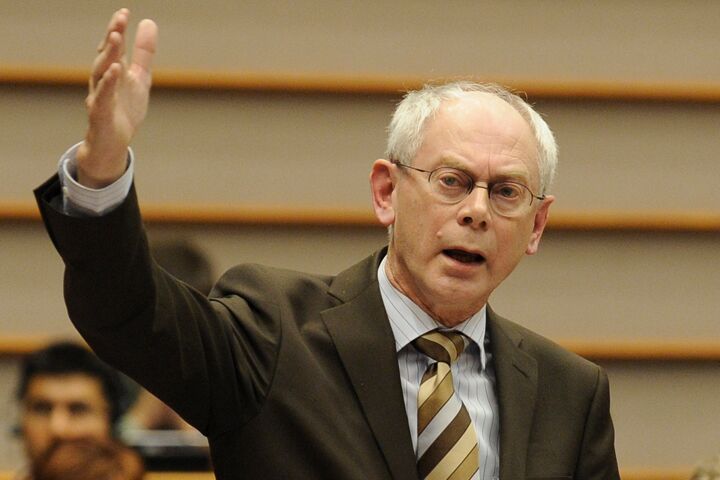
Van Rompuy: Euro Crisis Turning National Parliaments Into EU Institutions
National parliaments are becoming like EU institutions as part of the “growing interweaving of European and national politics,” said European Council President Herman Van Rompuy on February 27.
European integration is a “slow process which sometimes gets a sudden push,” concluded Mr. Van Rompuy. “In this crisis we have reached a whole new level of cooperation, a sort of European home affairs.”
“In the old days, exaggerating just slightly, the European Community used to exist on one planet, and national politics on six, nine, twelve, fifteen other planets,” he said at the start of his speech. “This is over now. The debt crisis, difficult and painful as it is, brings home the fact that the Union is us. Right here and now, in everyone’s daily life. Europe is not a great abstract idea for the future, no it is our daily experience!”
Speaking at the opening of a conference for officials across Europe to discuss economic policy, Mr. Van Rompuy said, “Maybe not formally speaking, but at least politically speaking, all national parliaments have become, in a way, European institutions.”
“Here the old slogan of the three musketeers applies: ‘All for One; One for All!’ It is the responsibility of the parliaments to adapt themselves to this situation,” he said.
The euro has made the European Union more interdependent, he said, so that “Decisions by one national parliament—be it in Germany or Ireland, in Slovakia or Portugal—are watched all over Europe.”
Van Rompuy also highlighted how much power the EU had gained as a result of the crisis: “The Commission has received unprecedented supervisory power. The Court of Justice will control the transposition of the debt brake. The European Parliament was decisive in designing the new budgetary and macro-economic surveillance ….”
He also admitted that EU nations had lost sovereignty over their finances and economy. Under new agreements on deficits, “the national parliaments keep their budgetary sovereignty, at least as long as national policies do not threaten the financial stability of the whole,” he said. In other words, if the EU deems that their budget threatens the European economy, they lose sovereignty. “The Commission and other euro area member states have to be consulted before adoption of any major fiscal or economic policy reform with potential spillover effects, so as to allow for an assessment of possible impact on the euro area as a whole,” he said.
This EU power grab is exactly what the Trumpet forecast right from the start of the crisis. We’ve often drawn attention to this insightful statement by Bernard Connolly, former EU civil servant and author of The Rotten Heart of Europe:
[T]he EU quite deliberately created the most dangerous credit bubble of all: emu [European Monetary Union]. And, whereas the mission of the Fed is to avoid a financial crisis, the mission of the ecb [European Central Bank] is to provoke one. The purpose of the crisis will be, as [Romano] Prodi, then Commission president, said in 2002, to allow the EU to take more power for itself. The sacrificial victims will be, in the first instance, families and firms (and banks and investors) in countries such as Ireland …. Subsequently, German savers (or British taxpayers) will bear the burden of bailouts that a newly empowered “EU economic government” will ordain.
This is exactly what has happened. Even Eurocrat in chief Herman Van Rompuy admits that the crisis has forced nations to give power to Brussels.
But the crisis is not over, and it won’t end until EU nations have been forced to cede even more power to the EU and Germany.
